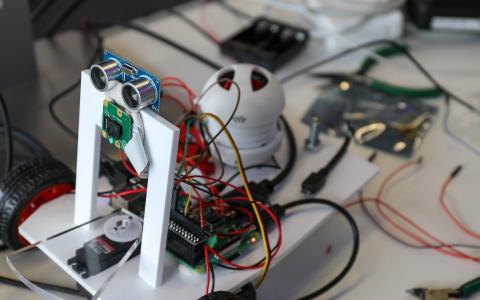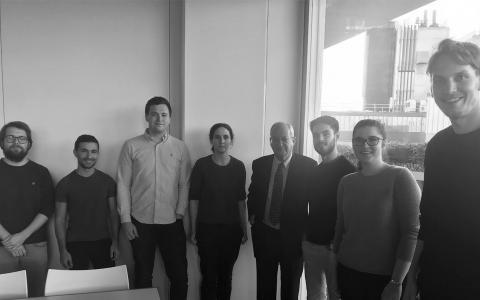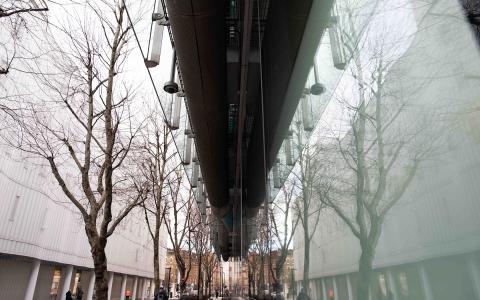
Pursuing a PhD in neuroscience
An interview with Nicole Vissers conducted by April Cashin-Garbutt
Nicole Vissers, PhD student in the Hofer Lab at SWC, shares her journey in science so far and her advice to those interested in pursuing a PhD in neuroscience.
What first sparked your interest in neuroscience?
I studied Biomedical Sciences as an undergraduate and one of the modules on my course was neuroscience. Many of my friends on the course found the module really complicated and they weren’t sure if they were going to pass, but I never felt that way. I found neuroscience fascinating, and the complexity was something I wanted to study further. In some ways, it felt natural. Instead of a complicated topic, to me, neuroscience felt like a challenge I wanted to pursue.
In addition to my undergraduate course, I managed to get some practical experience by emailing one of the Professors at my university. This allowed me to gain access to a lab and learn more about what neuroscience really involved from a practical perspective.
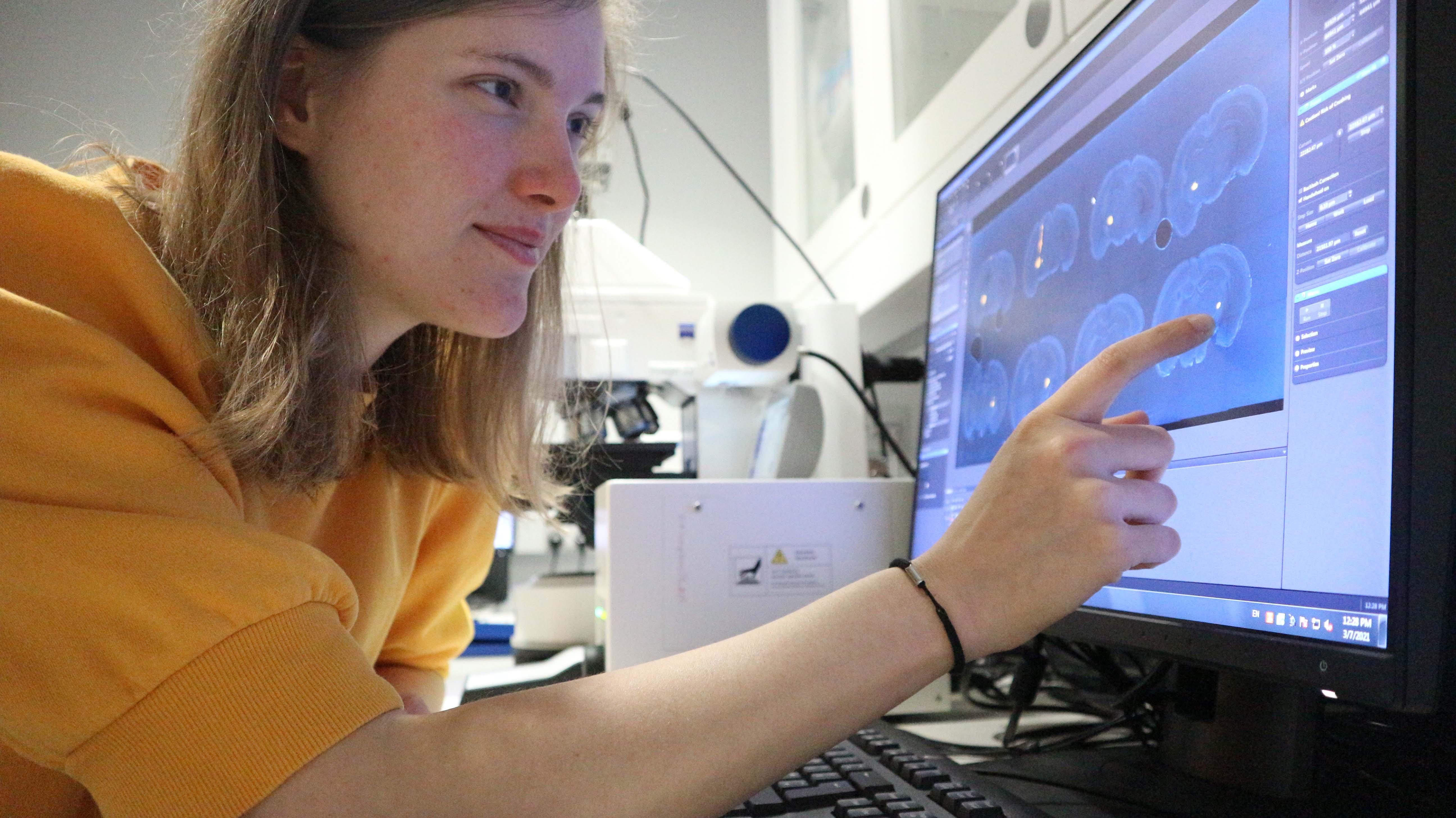
Why did you decide to do a PhD?
In general, I’m really interested in how things work, and I like getting into the details instead of just looking at a global perspective. Especially during my internships, I noticed I really enjoyed doing research, in particular surgeries, and being involved in lots of experiments. On top of that, during my degrees, I always really liked being involved in teaching, so I thought that combining teaching with actual research, such as a principal investigator (PI) position, would be something I’d like to do in the future. Based on my curiosity and enjoyment in research and teaching, I decided to do a PhD.
I never actually expected to do a PhD when I started my degree. I am a first-generation student as no one in my family ever went to university. I remember when I first started my undergraduate degree, I had no idea what it would be like and I didn’t want to ask questions. I didn’t even know what a PhD was!
What is a PhD and what does it involve day-to-day?
A PhD involves working on one specific project (for around 3-7 years) and conducting the research yourself. You start out with a research question you are interested in and diverge or focus on a specific topic based on your findings. On top of that, you plan your experiments yourself, with help from your PI and postdocs in your lab.
On a day-to-day basis, my PhD involves working with mice. So together with the animal caretakers, I take care of them and I do surgeries to prepare the mice for behavioural experiments. On top of this, I also have to read scientific papers, discuss my findings, analyse my data and results.
Altogether, a PhD involves lots of different things and it changes week by week. Some weeks you are just doing surgeries as you are planning to do lots of experiments, then you may have to wait a couple of weeks before the animal is fully recovered. Some weeks you are reading a lot or writing or preparing a presentation.
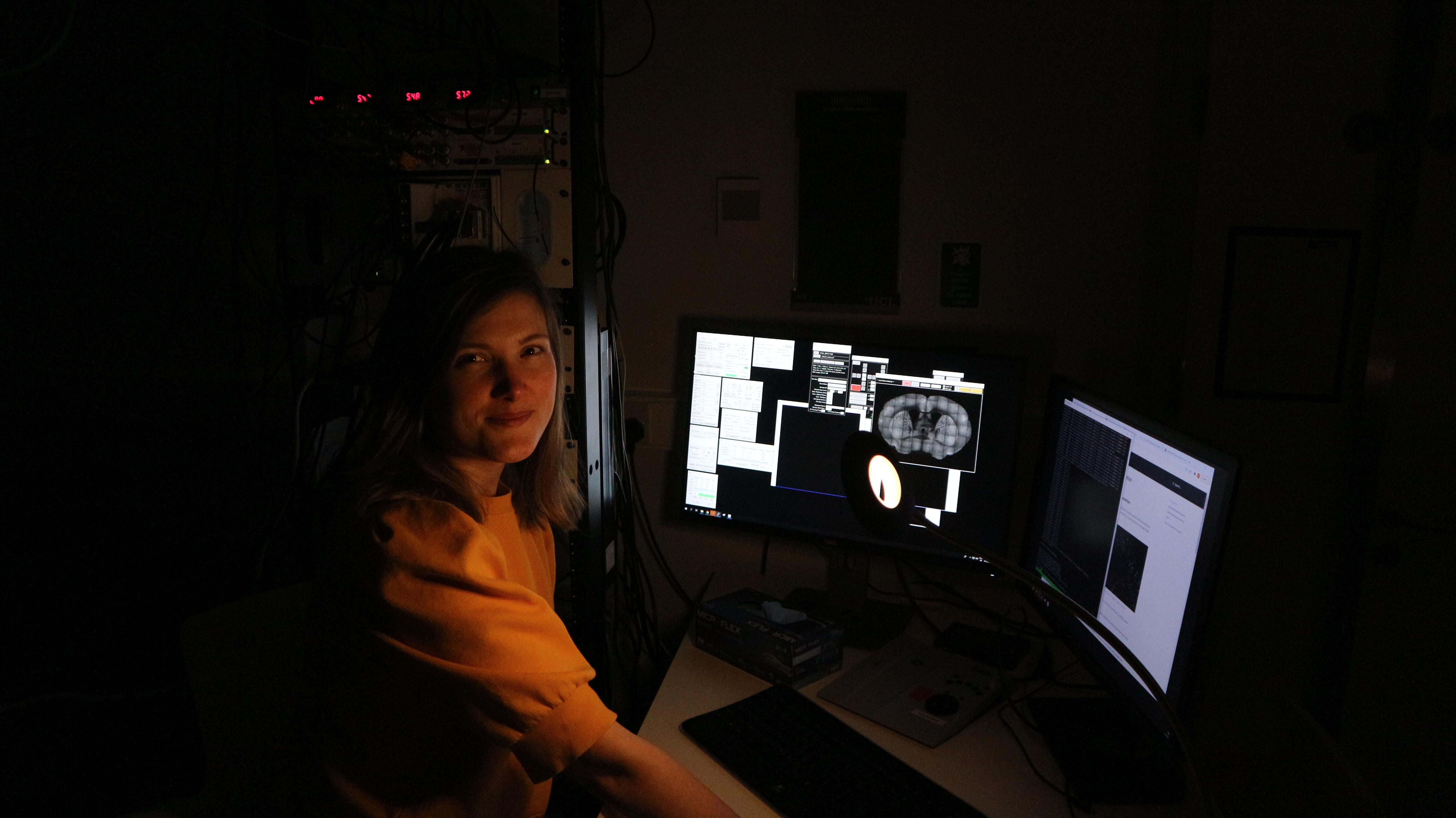
What are the hours like?
It depends on the lab, your topic and yourself really! Of course, your PI will have certain expectations but you also have a lot of freedom. You can spend your full week every day in the lab if you want to but if you have other things alongside your PhD that’s also fine.
It also really depends on what stage of your PhD you are in. When you are close to publishing a paper or you really need to get some additional results for an experiment or grant application, then it may be a bit busier than other times so it can be quite variable.
Do you have opportunities to teach during a PhD?
Teaching is something you can pursue during a PhD. For example, I am part of the UCL Connect.ed programme and I am currently mentoring seven undergraduate students and one masters student. I am also part of some other mentoring programmes in the UK, US and the Netherlands.
You don’t work 9 to 5 during a PhD so you can be flexible and pursue things like teaching. On Wednesdays, for example, I have a course myself, but before the course I mentor my students. I teach them for one hour a week and beforehand I prepare a lecture. I learn a lot from this myself and it helps the students too.
Do students typically publish a paper during their PhD?
In general, a lot of students publish at the end of their PhD but it depends on how defined your project is. The first couple of years tend to involve setting up techniques and figuring out how everything works. A PhD in the end involves a lot of learning and therefore also involves making mistakes. There are a lot of things that can go wrong during your experiments – you need to troubleshoot every time, that’s how you learn and improve.
By the time you have your data, you tend to be one to two years in. Writing a paper also takes time and you need to analyse your data carefully.
What kinds of career can you have following a PhD in neuroscience?
There are a lot of possibilities following a PhD in neuroscience as you learn many transferrable skills. You don’t just do experiments, but you have to become good at planning, data analysis and learn to be independent. For example, you have to contact companies to order things for your surgeries and you can set up new techniques.
After doing a neuroscience PhD, some people choose to join pharmaceutical companies, others join technology companies, such as those that make brain recording devices. Other options are consultancy, teaching, management positions and of course academic positions. So, there are lots of options to choose from.
How do you decide which lab to choose for your PhD?
People often think you have to pick the lab with the highest reputation, but I think the most important thing is to pick a lab that really fits your interest and also one that makes you feel at home and where you feel at ease with the people in the lab. They will support you throughout your PhD.
I remember when I was choosing a PhD position it was really hard as it was a decision I had to make on my own. In general, I’d say talking to a lot of people is the most important thing.
What makes the PhD program at SWC unique?
The proximity of the Gatsby Computational Neuroscience Unit (located in the same building as SWC) makes the program unique. Combining this theoretical and computational neuroscience together with experimental biological neuroscience at SWC was very appealing to me. It means you can get help with more in-depth mathematics and theoretical neuroscience if you want to and I think that is really important.
Is the culture at SWC supportive?
Yes. Although everyone is really busy doing their own science, everyone is really helpful. If you ask people questions or ask if they can help, everyone will make time to support you. There is also a lot of expertise in a wide variety of topics and techniques, so if you are stuck, there is always someone who can help.
What advice would you give to someone interested in pursuing a PhD in neuroscience?
Having a PhD as your goal is not the best goal. Follow your curiosity and go for the things you are interested in. Ask when you have questions and if you find a Professor that works on something you are really interested in, ask about PhD possibilities.
In my career path so far, the internships I have done were the most valuable in guiding me. They allowed me to build up my network and I learnt a lot from talking to everyone. If you do an internship and you meet people doing other experiments, ask if you can shadow them for a day and learn more about what they are doing. You might find something you are really interested in or a new technique that you’d like to learn.
How can you secure a lab placement or internship?
I recommend having the courage to walk up to the Professor and ask questions about the topics they taught you. Let them know you’re interested in learning more but also show them by asking questions about papers you have read and what ideas you have for topics you’d like to explore. You can also email them, but make sure to be specific and mention their papers or other papers that are related to their research that you would like to work on.
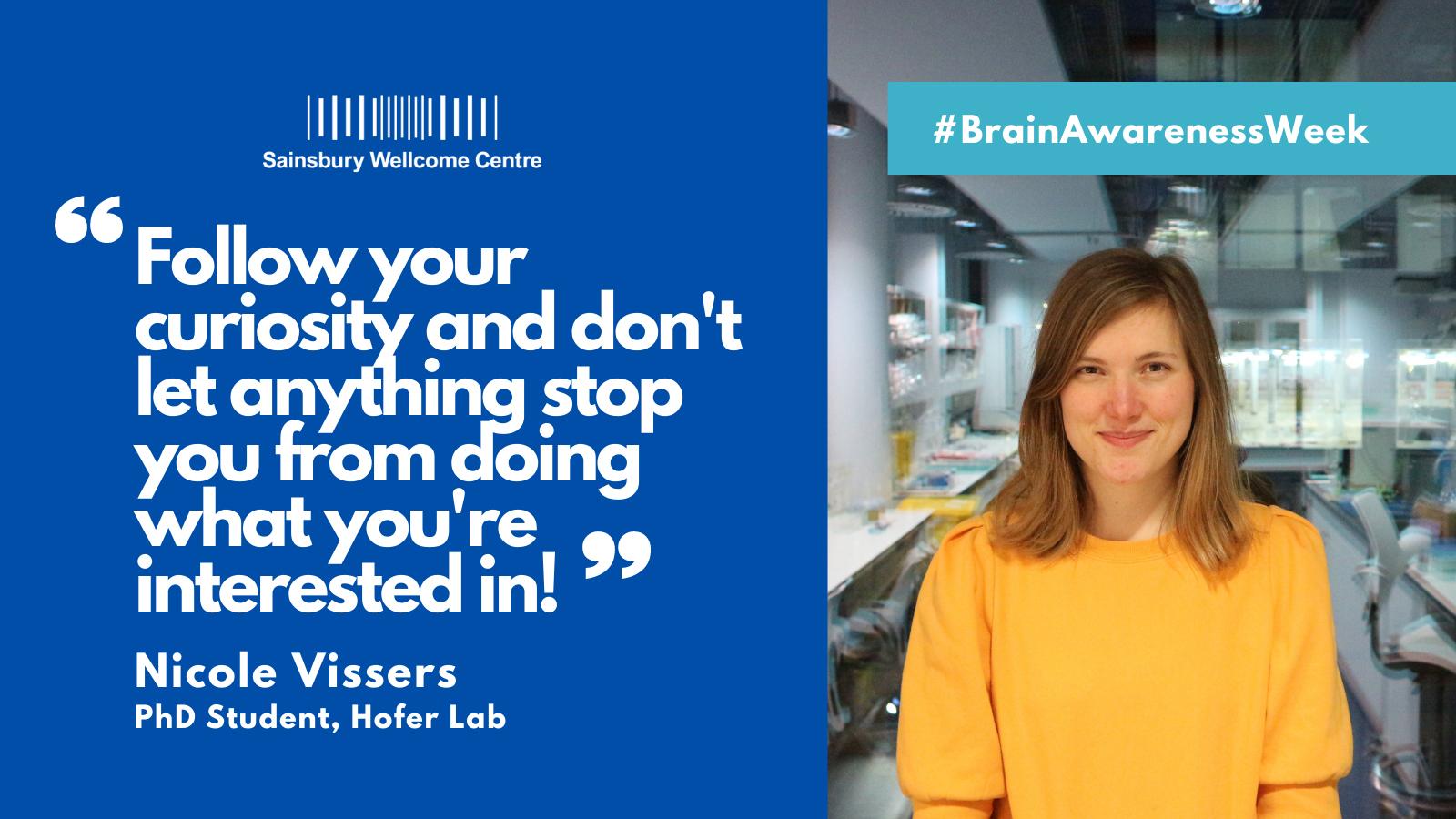
About Nicole Vissers
Nicole joined the SWC PhD programme in September 2020. She received her bachelor's degree in Biomedical Sciences from the Vrije University of Amsterdam and double master's degree in Brain and Cognitive Sciences and Neurosciences from the University of Amsterdam and Vrije University of Amsterdam. During these degrees she worked in various labs in the Netherlands where she worked with a variety of techniques, such as DREADDs, in vivo GRIN lens 2 photon calcium imaging and patch clamping. Because of her interest in long-range projecting inhibitory neurons, she also studied the graph theoretical explanation of the inhibitory neuron network development in the brain.
Nicole is mainly interested in inhibition, plasticity, perception, and dynamical/complex systems. She is currently pursuing her PhD in the Hofer Lab, where she works on the role of the various inhibitory neurons in the vLGN in escape behaviour. Nicole is also passionate about philosophy, science education and communication.
